Six facts about handmade natural soap
Selling my soap at markets and to friends and family has made me realise how many questions people have about handmade soap. Here are the answers to some of the common questions I get from people who are interested in using handmade natural soap.

1. All soap is made with lye
Soap is made by reacting fats and oils with lye. Lye is also known as caustic, caustic soda or sodium hydroxide. If you've used caustic to unblock a drain, that's exactly what I use to make soap.
Our ancestors used wood ash to make potassium hydroxide lye for soapmaking by percolating rainwater through a barrel of ash from a wood fire. This was a very inexact science, and so the soap was often very harsh.
These days we can buy very pure sodium hydroxide lye and weigh it out to make sure we use exactly the right amount in our soap. Most soapmakers (myself included) actually use a little less lye than is really needed, so make sure that the soap has extra fat (this is called superfatting). This means that handmade natural soaps are actually very gentle.
If you don't want to handle lye (and it has some risks, but can be done very safely), you can buy a "melt and pour" soap base. This is soap that has already been made with lye, so all you have to do is melt it and pour it into your own moulds.
2. Handmade soap is different to commercial soap
Occasionally people tell me that the don't like soap, or they can't use soap, but I always encourage them to try handmade natural soap because it is completely different to commercial soap. Commercial soap is made with cheap ingredients and the glycerin that is also formed when lye is reacted with fats is usually washed out of commercial soap to be sold separately. Glycerin is one of the constituents of handmade soap that make it so nourishing and gentle on your skin.
Commercial soap often contains colours, fragrances, synthetic detergents and preservatives that can irritate your skin. Some handmade soap will also contain these things, so make sure that you read the ingredients and try to find handmade natural soap if you have sensitive skin. I only use natural ingredients for colour and essential oils for scent.
3. Handmade soap will need to cure after it is made
After I make a batch of soap, it needs to cure for 4-6 weeks, depending on the weather (temperature and humidity). I usually cut a loaf of soap about 24 hours after I make it and place it on wracks to harden. It is still a little bit soft and sticky at that time. After a couple of days it hardens enough that I can wrap it and store it in cardboard boxes. Over this time it continues to lose moisture and harden. The longer soap is allowed to cure, the longer it will last when you start to use it. Unfortunately that means it can be hard to keep up with customer demand and having enough soap ready for markets, as I need to anticipate requirements 4-6 weeks in advance.
4. My soap is not vegan, but it is sustainable
My soap is all made with beef tallow. Beef tallow is rendered beef fat - beef fat that I have chopped up, heated until it is liquid and strained into containers, leaving behind the sinew. I originally used beef tallow because we had a steer killed and I had a lot of fat to use up, so I tried it in soap. These days I make more soap and I don't have enough beef fat from our property, so we buy it from a local abattoir. The second time we picked it up, they asked what on earth we were doing with the fat because they usually just throw it out. They were thrilled to know it was going to be used to make something instead of being wasted.
I had one lady ask at my market stall if I had any vegetarian soap and I explained that they all contain beef tallow, but it is using up a waste product. When she heard the story, she was happy to buy it, even though she was a vegetarian, it was more important to her that the soap ingredients were ethically sourced.
I use either 100% tallow or a mixture of tallow, coconut oil and olive oil depending on the soap (coconut and olive oil can add some lather for certain soaps). I prefer to use tallow as much as possible as it is locally sourced. The olive oil is Australian, but the cocount oil comes from pacific islands, so its good to support an industry in a developing country.
5. You can use my soap for anything you want
I do split my soap into categories, but that's just to make it easier for people to chose. Honestly, you can use any of the soaps for anything you want. They are all ok as face, body, hair and hand soap. You can use them on pets, in the laundry and for dishwashing.
Commercial products tend to be split into categories so that we think we need to buy more products, one for each application. I used to have a shower full of products - face wash., body wash, shampoo etc, now I just have a bar of soap that does everything.
6. I only use natural ingredients
As I mentioned above, I only use natural ingredients in my soaps. The lye is the only thing that is mass-produced, and that's a good thing, because every soap will turn out safely because I can use exactly the right amount of lye.
The tallow, coconut oil and olive oil have minimal processing. I also use food ingredients such as salt, coffee grounds and herbs for colour. And clays and activated charcoal. I don't use any micas or artificial colours. I don't use fragrance oils or synthetic detergents.
Did you have any other questions about handmade natural soap? Are you a soapmaker yourself? What do you get asked frequently?


















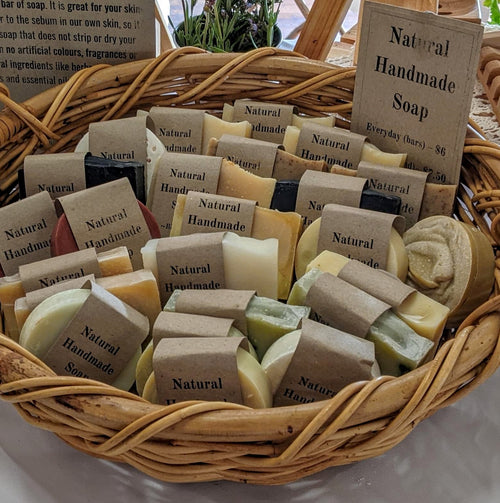
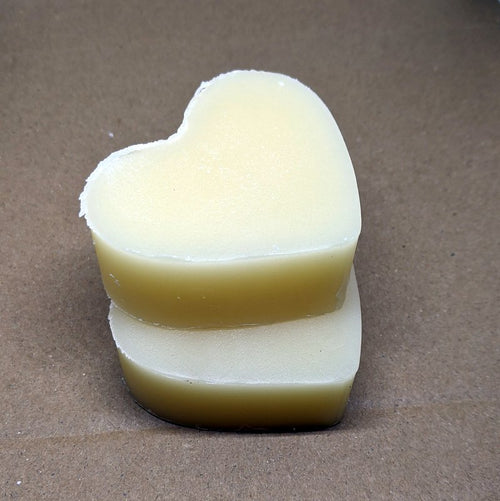
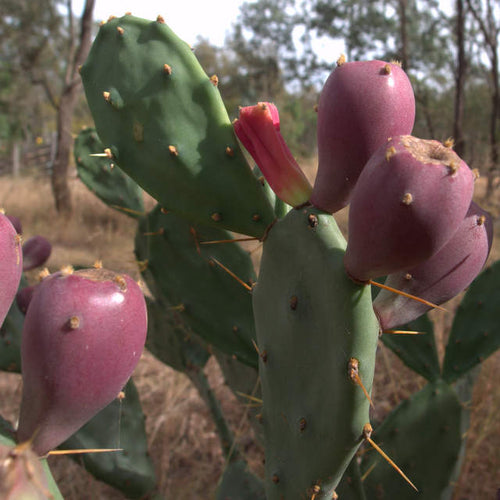
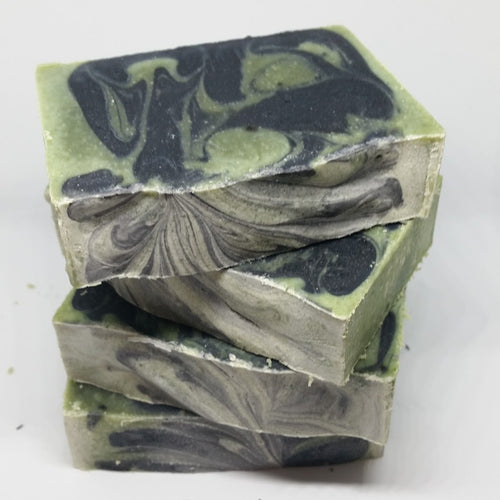
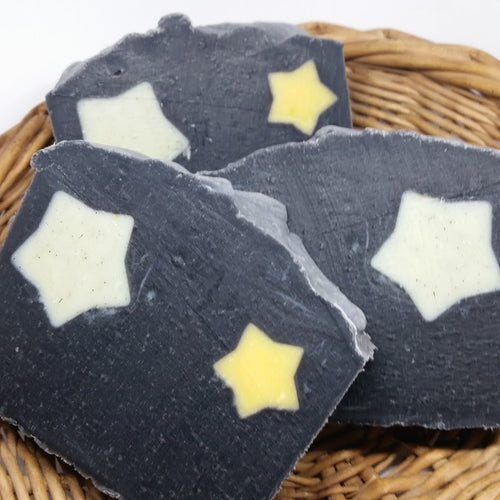



Is sheep tallow interchangeable with beef tallow amounts? I was given several pounds of sheep tallow and would like to make soap with it but cant find any recipes using sheep tallow
Recently I have started using homemade Soap and I am started feeling some changes in my skin. I am feeling very soft. I bought this soaps from Homemade Soap Store called Trascentuals. I am amazed with the delivery process, it’s too fast. Thank you. https://www.trascentuals.com/
Hi Therese, you will find that beef tallow will make the soap harder and set more quickly (although I’m surprised you had that problem with quick trace, maybe it was too hot?).
Hi Diana, thanks for your comment, I hope you enjoy the shaving soap, please let me know how it turns out!
Hi Liz, bought your soap recipe book for the shave soap, the book is interesting, love the recipes ! As I already make my own soap, milk based, I thought I’d like to try something different….I use beef fat also with both sunflower and olive oils added for long lasting soap ! Looking forward to batching up some shave soap soon, cheers from the Monaro region of NSW Australia and thanks for posting such great recipes in a E book !
Leave a comment